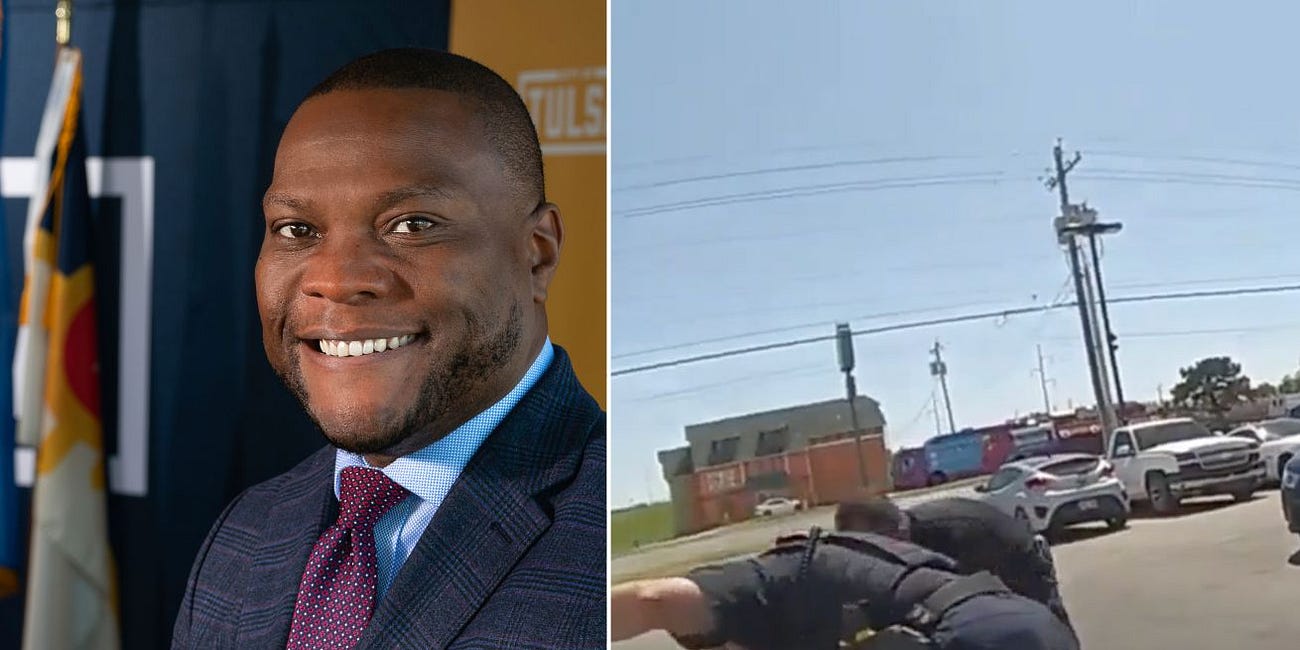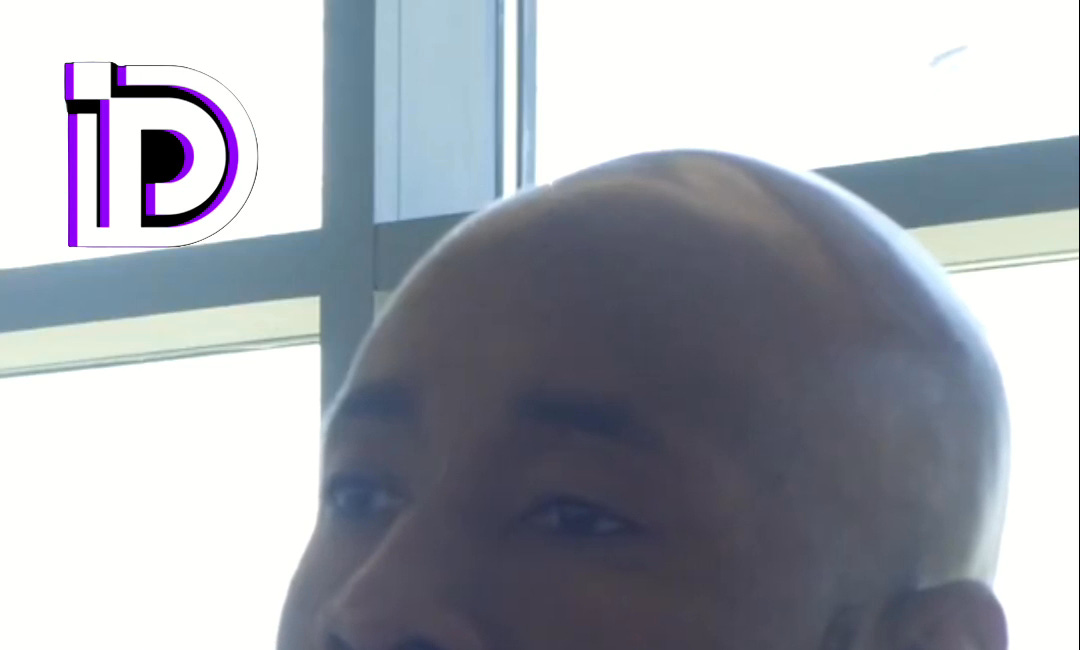A new downtown curfew for youth won't solve Tulsa's gun violence
Days after a mass shooting traumatized Juneteenth festival attendees on Black Wall Street, the Mayor's response risks further alienating the very youth they're trying to reach.
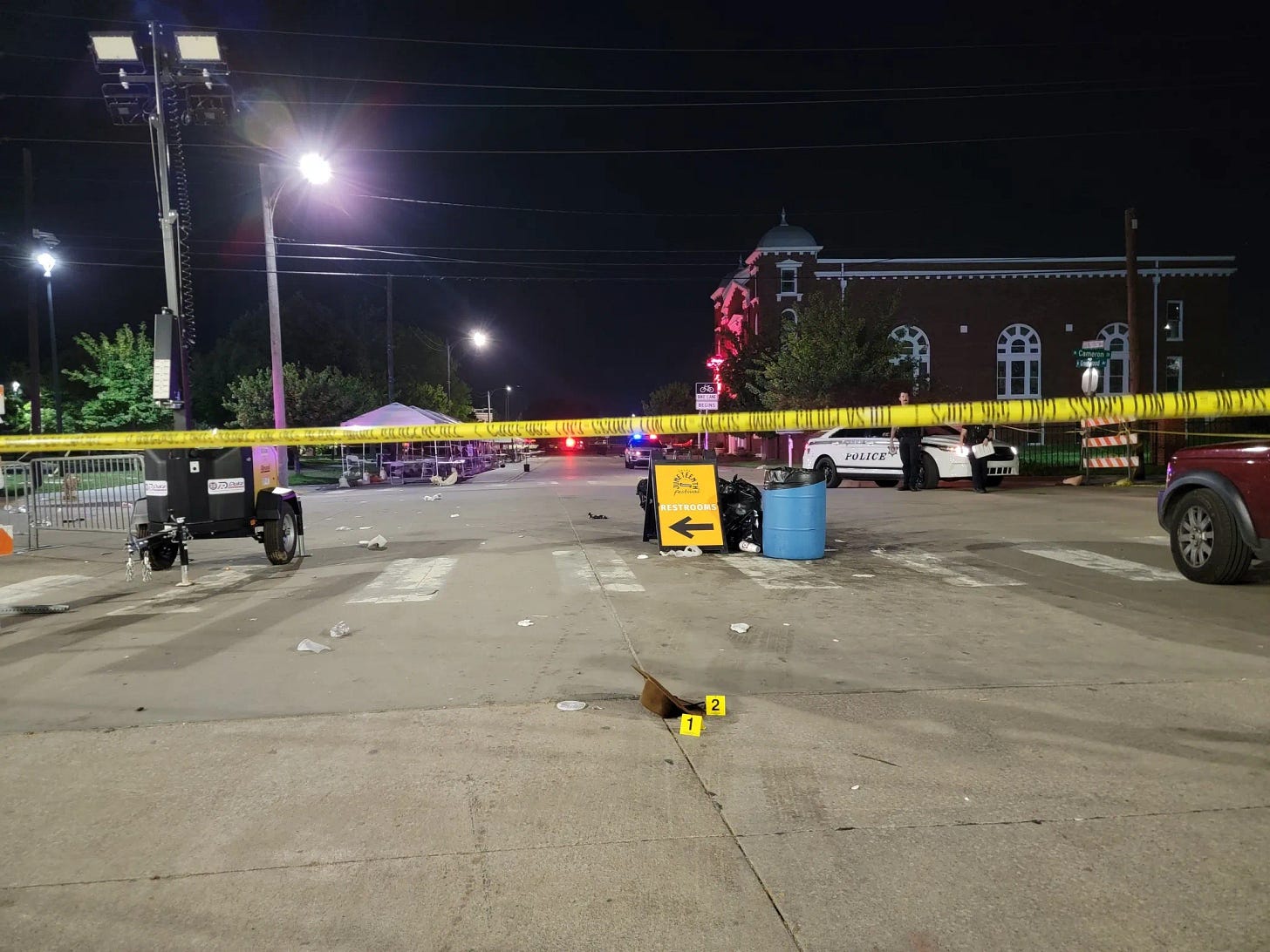
Twenty two-year-old Isaiah Knight leaves behind a partner and a baby. Seven others were wounded — some as young as 17, others as old as 80. Hundreds were traumatized. Black Wall Street was shut down with crime tape and blood on the pavement.
That’s the reality we’re sitting with after the mass shooting during the Juneteenth festival in Tulsa’s Historic Greenwood District. Even though overall crime is down in every category in Tulsa, Saturday night’s shooting follows a string of shootings involving young people throughout the city last week.
While the mayor’s office is proposing a new 9 p.m. curfew for minors downtown, I spent Monday night at Greenwood Griots, a creative studio for youth on Black Wall Street, sitting with young people who are living this crisis firsthand. The event was hosted by Kode Ransom, a community leader and entrepreneur who’s been on the ground with youth long before this shooting made headlines.
We didn’t talk about curfews. We talked about how to take kids from surviving to thriving and pushing adults to be more active in their lives. We talked about power. We talked about why this keeps happening.
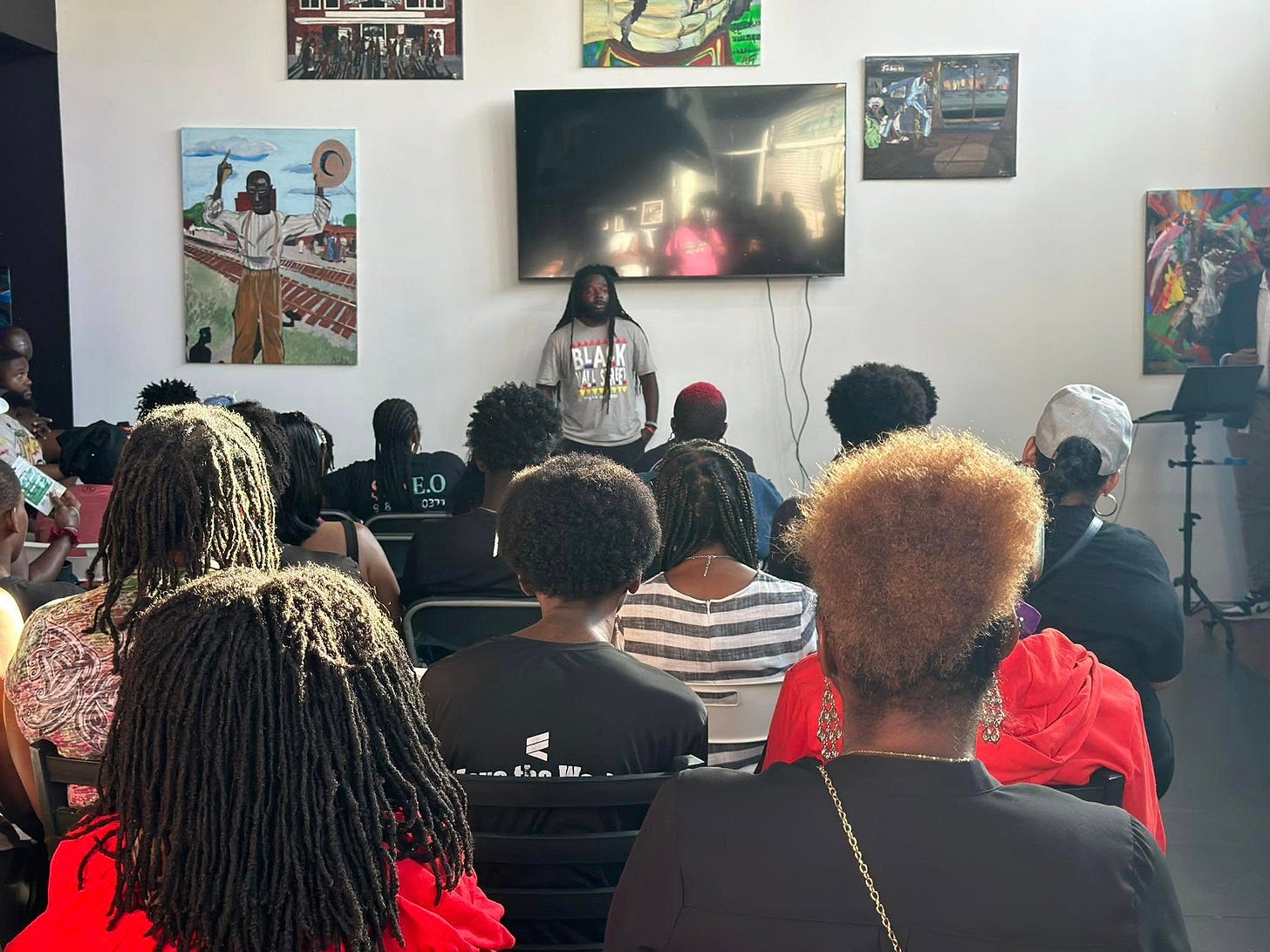
What the youth are saying — and what we’re not hearing from City Hall
Three things stuck with me after that night:
Some of these kids are watching people in other cities kill someone and get treated like gods by their peers. That kind of visibility — even if it's fear-based — starts to look like power for kids who feel unseen.
Guns are too easy to get. I heard stories about private gun sellers handing weapons to 14-, 15-, 16-year-olds without checking IDs. This is happening. It’s not theoretical. And it’s not being stopped.
It takes youth to reach youth. Period. You can’t legislate your way around that. Real prevention starts with building credibility, not curfews.
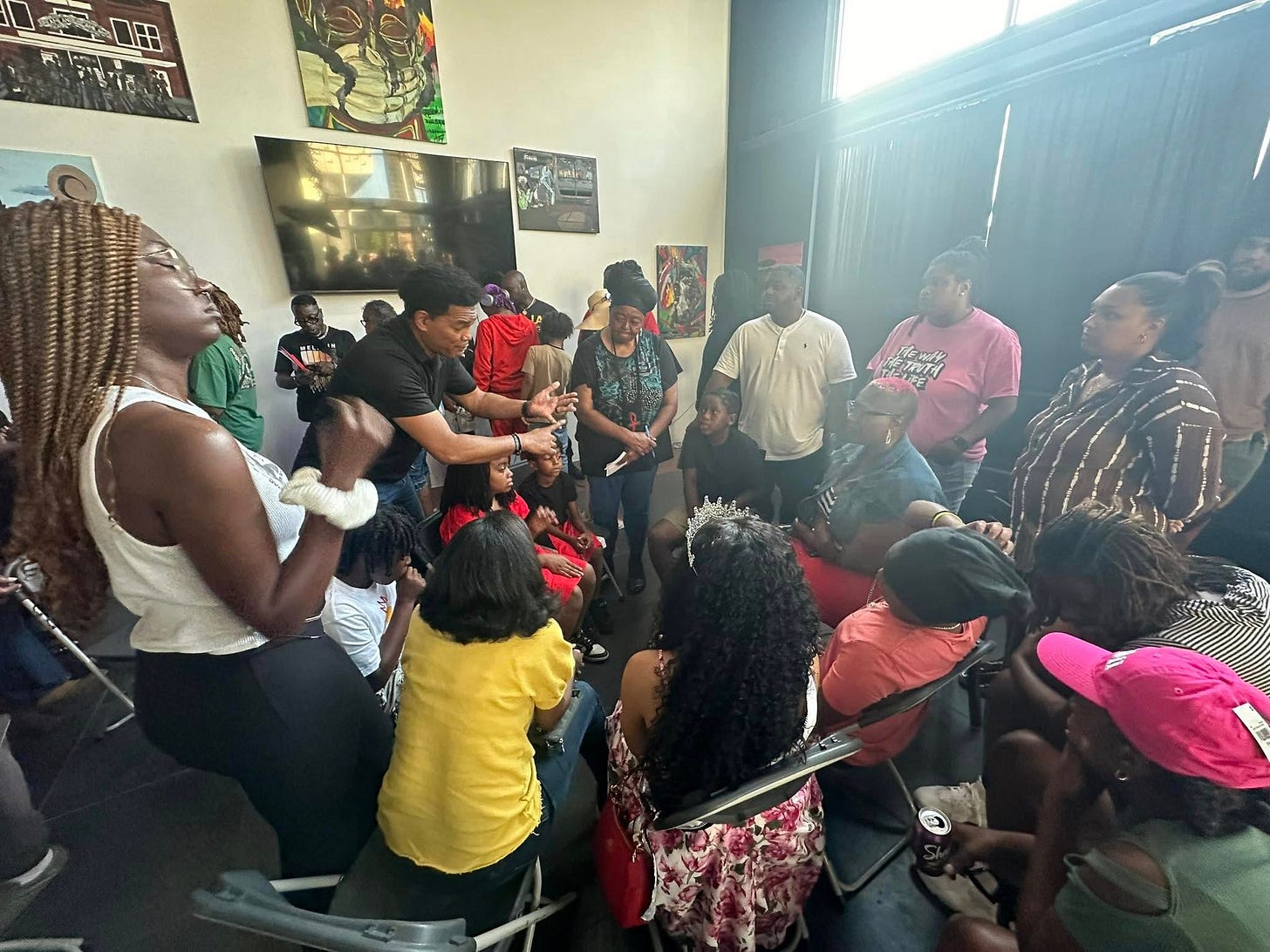
What a curfew won’t fix
The curfew proposed by Mayor Nichols would apply only within the Inner Dispersal Loop (IDL) — downtown — and begin at 9 p.m. for minors under 17. It’s being framed as a way to “make downtown safer” after the shooting.
But let’s be real about what this actually does:
It moves kids elsewhere. The IDL isn’t a barrier to conflict — it’s just a geographic line. If anything, it pushes the problem out of sight, not out of existence.
It makes business owners — mostly white — feel safer. That’s not the same thing as reducing gun violence. That’s optics.
It opens the door to racial profiling. The curfew is based on a similar one in Oklahoma City. One woman in OKC said her son was tackled by police after a movie because officers didn’t realize his mom was waiting for him in the parking lot. That’s not safety. That’s harassment.
If the curfew goes into effect, the burden won’t fall evenly. It never does.
The mayor is under pressure. But this isn’t a solution.
I don’t doubt that Mayor Nichols cares about this issue. He’s rolling out crisis response teams. He’s talked openly about the limits of police presence, and about Oklahoma’s reckless open carry laws.
But I also see a new mayor under pressure to “be tough” — not necessarily to be right.
And curfews are the kind of thing that look good in a press release but fall apart in practice.
Let me be clear: We need intervention. But not the kind that starts with handcuffs.
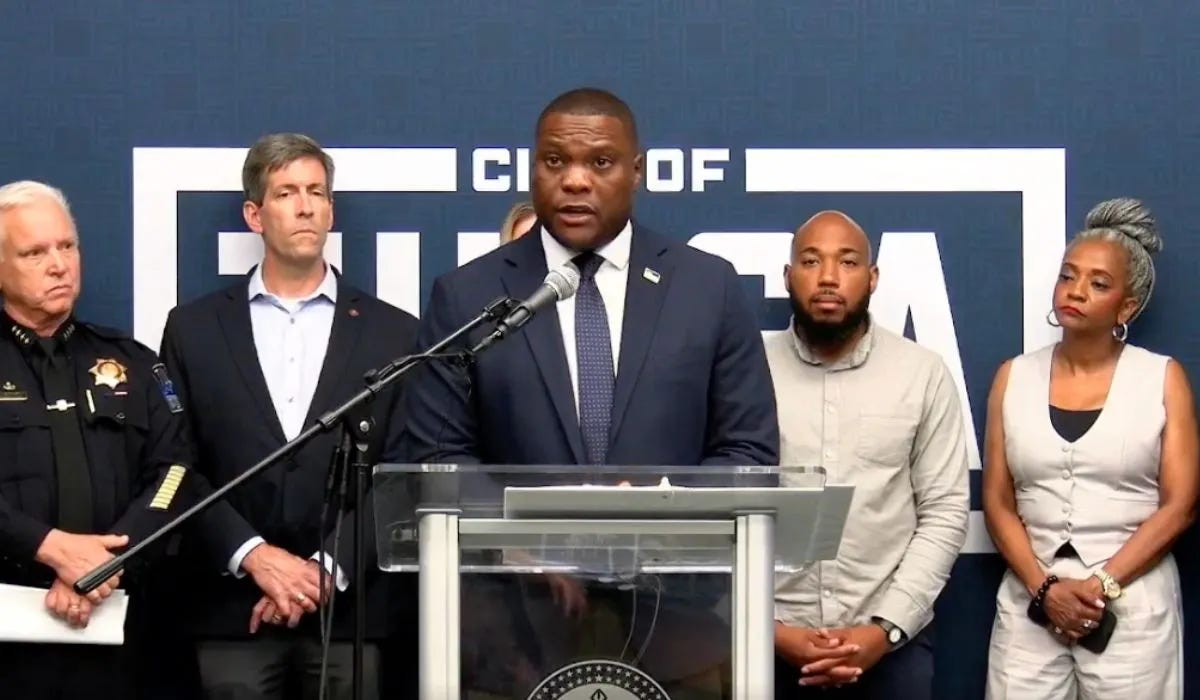
We need:
Gun enforcement at the point of sale.
Investment in youth who are already trying to lead their peers.
And city leadership that listens to kids not just after the news cameras show up, but every day after that.
These kids have the answers. They’re living it. Those closest to the problem are closest to the solution, and they aren’t grown in a petri dish. They’re products of their environment and the parents who raise or don’t raise them. If we’re only listening to law enforcement, we’re already behind.
Join me this afternoon for a live video where I share my honest thoughts.
Tulsa Police ran over a man. I asked the mayor what he's going to do about it
I’ll be blunt with you. This reporting isn’t easy to fund — and it’s getting harder. If this work matters to you, become a paid subscriber today and help me keep going.
"I always knew I was innocent: Channen Smith closer to exoneration from Oklahoma Prison
In the middle of an empty visitation room at the Mack Alford Correctional Center in Southeast Oklahoma, 36-year-old Channen Smith sat across from me, a prison officer standing nearby, and said something that should shake us all.






